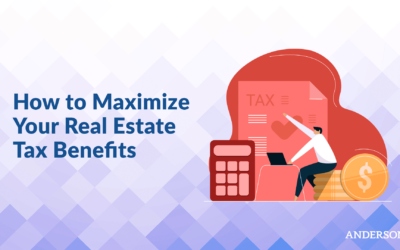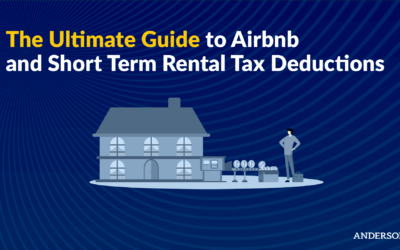Two heads are better than one, the old saying goes. So, when it comes to real estate investing, which is better: working with a partner or flying solo?
Real Estate Partnership Pros
- Increased Connections
- More Financial Resources
- Distribution Flexibility
- Diverse Experience
- Split Responsibilities
- Powerful Portfolio
Real Estate Partnership Cons
- Split Profits
- Differing Opinions
- Interpersonal Strain
- Unequal Involvement
More than 75 million homes in the United States are owner-occupied, while 50 million are rented. Of these 50 million homes, 41 percent are owned by individual landlords who are renting the property out to a tenant. A whopping 45 percent of these landlords are their own property managers.
According to some studies, the average landlord has around three properties under their name, though some investors have a much larger real estate portfolio. And around half of all landlords originally purchased the rental property as a primary residence, later turning it into a rental. From these stats, you can see that most people involved in real estate investing are running a much smaller operation than a company that owns several apartment complexes.
Many of these real estate investors work alone. Real estate investing, just like any other kind of investing or business ownership, requires an entrepreneurial spirit. People with this type of personality often find it difficult to plug into a typical corporate structure. They prefer to be in control of their own destiny and would rather run their own business.
There are also many landlords that are holding down a traditional nine-to-five working for someone else, yet, many of them yearn to be their own boss. With sentiments like these, it’s easy to imagine why many investors don’t want to work with someone else. But as it turns out, there are some real estate investors that enjoy working with others, and many of them have realized the benefits of working with other investors.
Tax & Asset Protection Workshop
Learn about Real Estate & Asset Protection at our next
FREE LIVE STREAM
What is a Real Estate Partnership?
A real estate partnership involves two more individuals working together to invest in real estate, whether that means rental properties or flipping houses. These partners work together, often shouldering equal amounts of risk, responsibility, and reward.
There are different types of partnership. Some partners are actively involved in projects, while others—often called silent partners or silent investors—might simply partner up by providing money for a project. But if two (or more) investors are actively partnered together, they can bring their resources and experience together for what hopefully turns out to be a more lucrative portfolio.
How to Structure a Real Estate Partnership
One way to structure a real estate partnership is to create a limited liability company or LLC. LLC advantages include separating personal assets from business assets so that you cannot be targeted by a plaintiff or creditor related to one of your real estate properties. However, in some cases, an LLC may not protect the business assets from liability incurred by one of the other partners. An example would be if your partner is responsible for salting properties during the winter and forgets the parking lot at a jointly owned commercial property, causing an accident. This type of mistake cannot easily be compartmentalized from the rest of the business.
Another option for structuring a real estate partnership is the LLP or limited liability partnership. This arrangement does a better job of keeping partners separate in terms of risk and liability while maintaining the possibility of a shared reward. This is in contradistinction to being general partners, where each partner might have unlimited liability vis-a-vis the business. Usually, a general partnership is a type of informal arrangement that you will want to avoid by forming an LLC or LLP.
Another similar option is the LP or limited partnership. This type of arrangement creates a category of participation called limited partner, which basically means their involvement in the business decision-making is limited. This type of structure works well when one investor partners with silent investors to collect funding for a project, but does not want them involved in project decision-making.
Yet another option for structuring a partnership is the corporation, specifically the S corporation. S corporations can have multiple members and allows for company profits to pass through to personal tax returns so that company members can avoid double taxation. However, S corporations are required to observe certain formalities, like having a board of directors, which are not required of an LP or LLC arrangement.
You may have heard of an entity called a REIT or real estate investment trust. Generally speaking, this is a far more complex structure that is not a good fit for the smaller investors who own a handful of single-family homes or a few small apartment complexes. A REIT requires at least 100 shareholders and is more similar to a C corporation than a small business.
Real Estate Partnership Pros
Going into business with another real estate investor has many benefits, including:
1. Increased Connections
You are a composite of the five people you spend the most time with, or so goes the adage in pop psychology. The same is true in business, especially real estate. In order to succeed in real estate investing, you need to know a wide variety of people—from contractors to property managers to people involved in real estate finance. If you have a partner, your network may double in size, giving you more connections to helpful resources that can help you save time and money.
2. More Financial Resources
Have you ever applied for a loan and required a co-signer? Perhaps not recently, but it’s likely that at some point in your life, you have. When a bank feels that it has more recourse to satisfy a debt in the face of a potential default, the credit risk posed by the borrower goes down.
If you are working with someone else and their financial profile and/or assets can combine with yours, it will be easier to get a traditional conventional mortgage or even find private money lenders.
3. Distribution Flexibility
When you are working with another person, there might be more opportunities to structure the cash flow from your rentals or flips so that everyone is happy. One person might claim more tax advantages and another claim more profit, or vice versa. Part of this process may involve creating a real estate asset protection plan, like a revocable trust.
4. Diverse Experience
One of the best parts of working with another person is that you will be able to draw from their experience. For example, one partner might have more experience navigating the financial component of investing, while the other might have more hands-on experience with construction. The best partnerships are often ones where each person brings a different strength to the table.
5. Split Responsibilities
Working with a partner also affords you the opportunity to delegate responsibilities you’d rather not deal with, especially if you don’t have as much experience. Different people have different tastes and preferences regarding what they are interested in doing. Returning to our previous example, one partner may not mind navigating the financing, and may even find it enjoyable, especially in comparison to picking up a power tool or going to the hardware store.
When it comes to real estate, there are many different responsibilities that need to be taken care of, including property management. Working with someone else means sharing the workload.
6. Powerful Portfolio
Working with a partner can also help you develop a powerful real estate portfolio. Remember that you are able to draw on this person’s experience and resources in combination with your own, which means it should be easier to build a portfolio of rental properties. This can be true whether you have a general partnership with another investor or you have several silent limited partners.
Such arrangements can double, triple, or quadruple your buying power. For instance, if you get 10 investors together, you might be able to buy a commercial property instead of a single-family home you would be able to afford on your own.
Real Estate Partnership Cons
While there are many benefits to working with another real estate investor, it does have its drawbacks as well. Potential partnership pitfalls include:
1. Split Profits
If you are working with someone else, they are not doing it for free. You’ll have to split the investment profits. In some arrangements, the profits are split down the middle. In other cases, profits may be awarded commensurate to the amount of capital put in. Whatever the case may be, it’s going to reduce your share.
There will be different implications of profit sharing between real estate limited partnerships (with investors) and a general partnership, for instance. These should be discussed with a third-party legal expert before the first joint investment property is purchased.
2. Differing Opinions
Working with someone else means you are going to have to take their opinions into account. They may have a different approach to real estate, or have a different opinion on how to proceed within a single project. While navigating differences of opinion is a natural part of any partnership, sometimes opinions are too divergent to be functional, and the proverbial band will have to break up.
3. Interpersonal Strain
In a similar train of thought, working with someone else can carry a fair amount of stress, especially if there is frequent disagreement. If this partner is someone you know personally, you should definitely think long and hard about working together on a business venture, because business and pleasure don’t always mix.
Sometimes business ventures with a friend or family member can create social strain outside the business, especially if things don’t go as planned.
4. Unequal Involvement
Sometimes people suddenly realize that the partner they’re working with does not seem like the partner they went into business with. People change over time, as do their circumstances.
For example, you have started working together with equal involvement in your portfolio. Then your business partner had a major work or life change. It could be anything from a promotion that requires more hours at the job, a divorce, or a death in the family. These events can create major upheavals that pull a person away from a business partnership. And as unfortunate as it may be, sometimes they just lose interest in something they initially seemed enthusiastic about.
Is a Real Estate Partnership Right for Me?
Take a look at the above pros and cons and consider your own life and work preferences. On the one hand, working with a partner who can share their experiences with you might be helpful for navigating certain business matters, such as inflation in real estate, and what to do about it. On the other hand, working with a partner might create stress and headaches.
There is no one right answer for everyone, but even if you don’t work with a partner, it’s a good idea to find someone who can provide mentorship. A great place to start with this is joining something like a local Real Estate Investors Association, which can be found in nearly every city.
Real Estate Partnerships Leverage Knowledge and Resources
Real estate partnerships provide an opportunity to double, triple, or quadruple your success with a joint venture. A real estate partner can provide extra capital and experience while reducing the burden of running a real estate business. This is especially true for a real estate investor who is just getting started as much as it is for someone with years of experience searching for the next investment opportunity.
The business entity of business owners coming together in a partnership agreement should not be a mere informality, for a variety of reasons. One of the biggest reasons is personal liability, others include profit and tax implications. Rather, a real estate investment partnership should be formalized in a legal business entity that outlines the responsibilities and expectations of both partners. You can learn more about these issues and more by signing up for our Structure Implementation Series Workshop.
Free Strategy Session with an Anderson Advisor
Receive a detailed risk assessment to assist in lowering problem areas that could wipe out all of your assets with one wrong move. Speak with an Anderson Professional Advisor to get your FREE Strategy Session. Limited-Time offer: FREE (a $750 value.)















